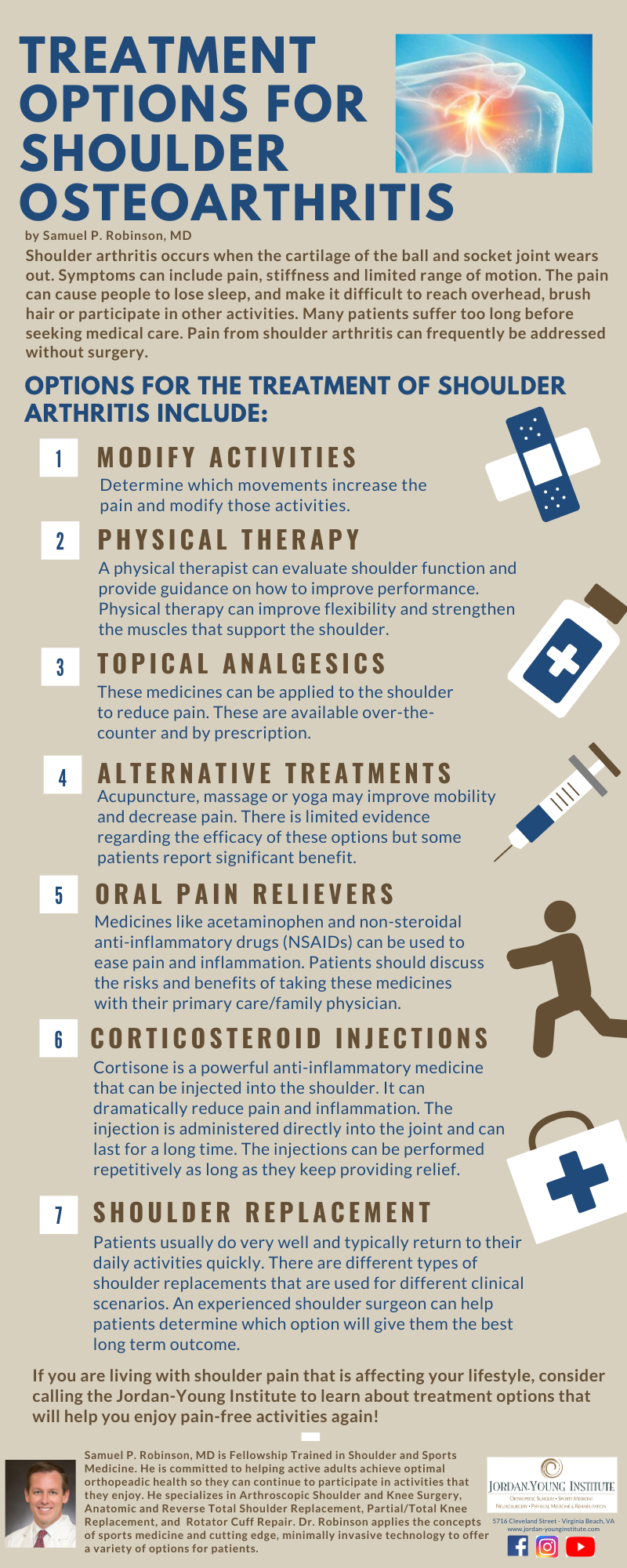by Samuel P. Robinson, MD
Shoulder arthritis occurs when the cartilage of the ball and socket joint wears out. Symptoms can include pain, stiffness and limited range of motion. The pain can preclude people from various activities of daily living including reaching overhead, brushing hair or trouble sleeping. Many patients often suffer too long before seeking medical care because they are fearful that shoulder arthritis will require surgery. The good news is that pain from shoulder arthritis can frequently be addressed without surgery. Patients are encouraged to see a shoulder specialist so they can understand their options. There are a variety treatments depending on the extent of the problem.
Options for the treatment of shoulder arthritis include:
1. Modify Activities – Determine which movements increase the pain and modify those activities.
2. Physical Therapy – A physical therapist can evaluate shoulder function and provide guidance on how to improve performance. Physical therapy can improve flexibility and strengthen the muscles that support the shoulder. However, in severe cases of arthritis, physical therapy can cause increased discomfort and should be completed with care.
3. Topical Analgesics – These medicines can be applied to the shoulder to reduce pain. These are available over-the-counter and by prescription. Many patients have found these medicines to provide temporary relief.
4. Alternative Treatments – Treatment options such as acupuncture, massage or yoga may improve mobility and decrease pain. There is limited and sometimes conflicting evidence in the literature regarding the efficacy of these options but some patients report significant benefit.
5. Oral Pain Relievers – Medicines like acetaminophen and non-steroidal anti-inflammatory drugs (NSAIDs) can be used to ease pain and inflammation. Patients should discuss the risks and benefits of taking these medicines with their primary care/family physician.
6. Corticosteroid Injections – Cortisone is a powerful anti-inflammatory medicine that can be injected into the shoulder. It can dramatically reduce pain and inflammation. To treat arthritis, the injection is administered directly into the joint. The injection usually works very well and can last for a long time. The injections can be performed repetitively as long as they keep providing significant relief.
7. Shoulder Replacement – Patients usually do very well from shoulder replacement and are often pleased with how quickly they return to their daily activities. There are different types of shoulder replacements that are used for different clinical scenarios. An experienced shoulder surgeon can help patients determine which option will give them the best long term outcome.
If you are living with shoulder pain that is affecting your lifestyle, consider calling the Jordan-Young Institute to learn about treatment options that will help you enjoy pain-free activities again!

